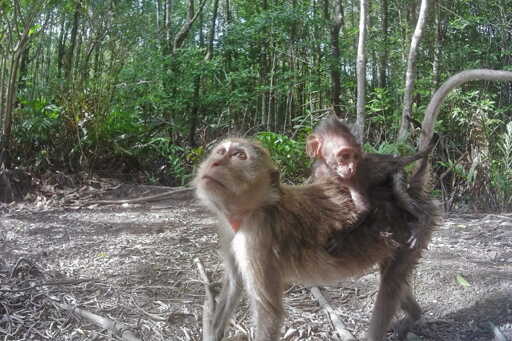BANGKOK — The long-tailed macaque will remain on the Red List of the IUCN, the global wildlife conservation authority, despite objections from the biomedical industry arguing the designation hampers research that relies on the primate to test vaccines and drugs. The IUCN escalated the conservation status of the species, Macaca fascicularis, from vulnerable to endangered in 2022 after macaques poached from the wild were found to have been laundered into breeding farms in Cambodia, Laos and Vietnam supplying laboratories abroad. The National Association for Biomedical Research (NABR), a U.S. lobby group, challenged the listing, but the latest assessment, published Oct. 10, found that wild populations of the macaque had declined by 50-70% over the past three decades. That led the IUCN to reaffirm the species’ endangered listing. “I’m happy to see science prevail, but I’m not happy to see the long-tailed macaques endangered,” Malene Friis Hansen, co-author of the assessment and a leading researcher on the species at Aarhus University in Denmark, told Mongabay by phone. “This is a species of primate that shouldn’t be in this situation — that we’ve pushed such an adaptive synanthrope to this stage should be an eye-opener.” The NABR filed its complaint in 2023, alleging conflicts of interest and scientific errors had influenced the original endangered listing. But last week, the IUCN announced an internal investigation had found no breach of its conflict-of-interest policy. While the IUCN acknowledged that the original assessment contained some “emotive, value-laden language,” it deemed this had no impact on the listing.…This article was originally published on Mongabay
From Conservation news via this RSS feed


